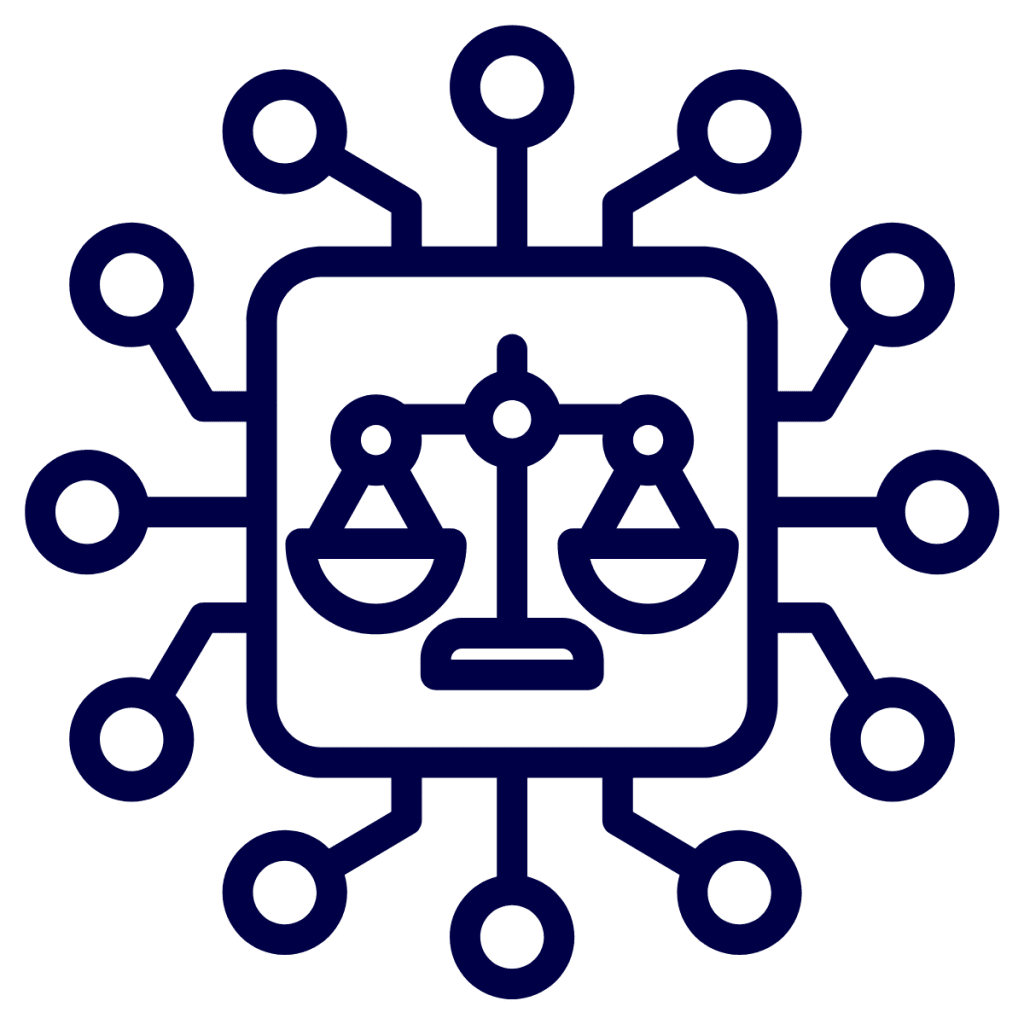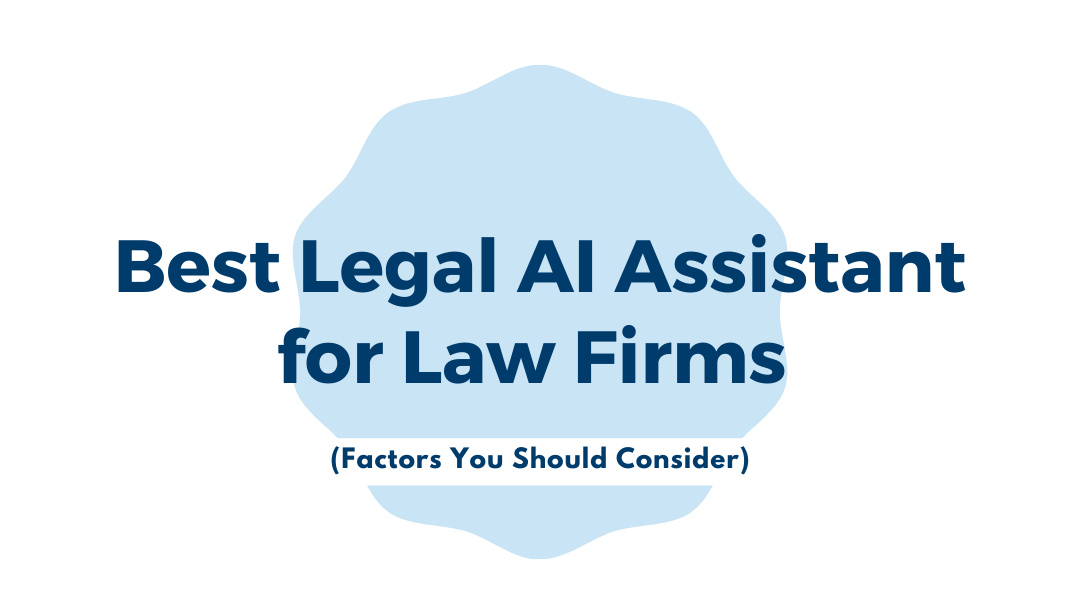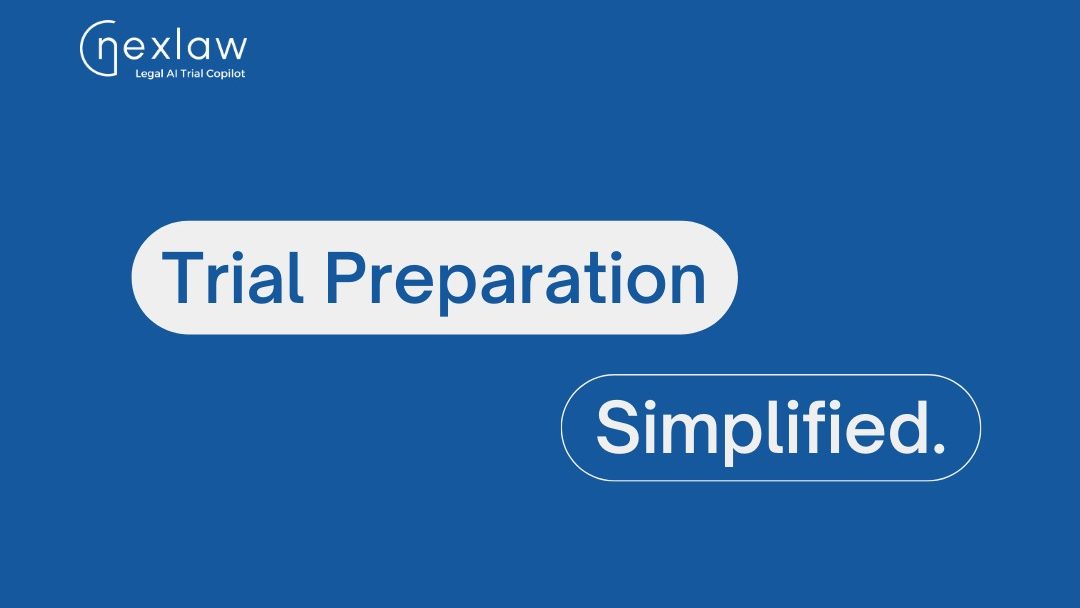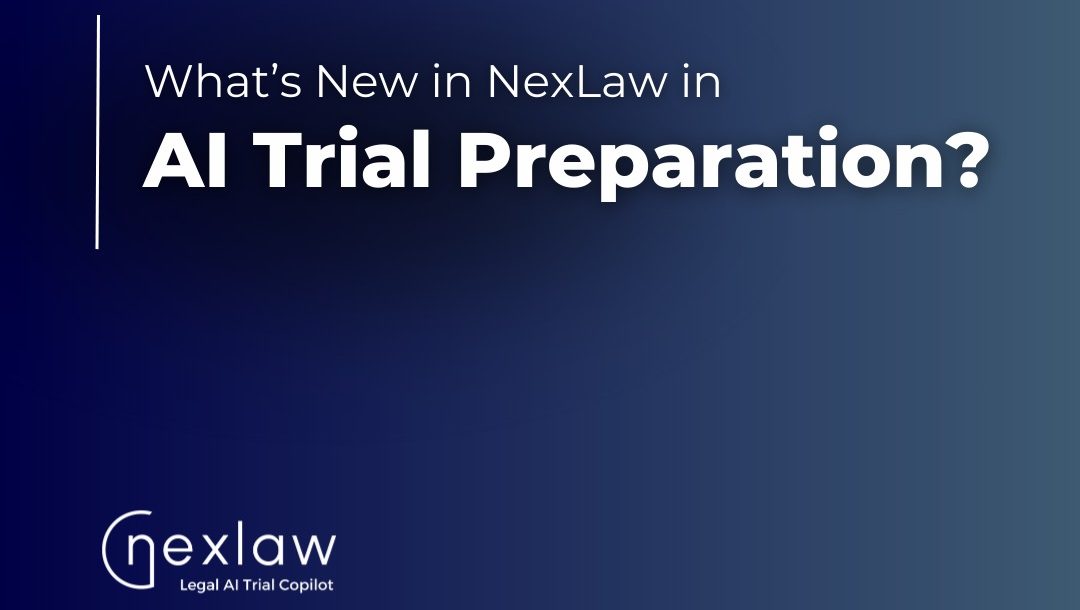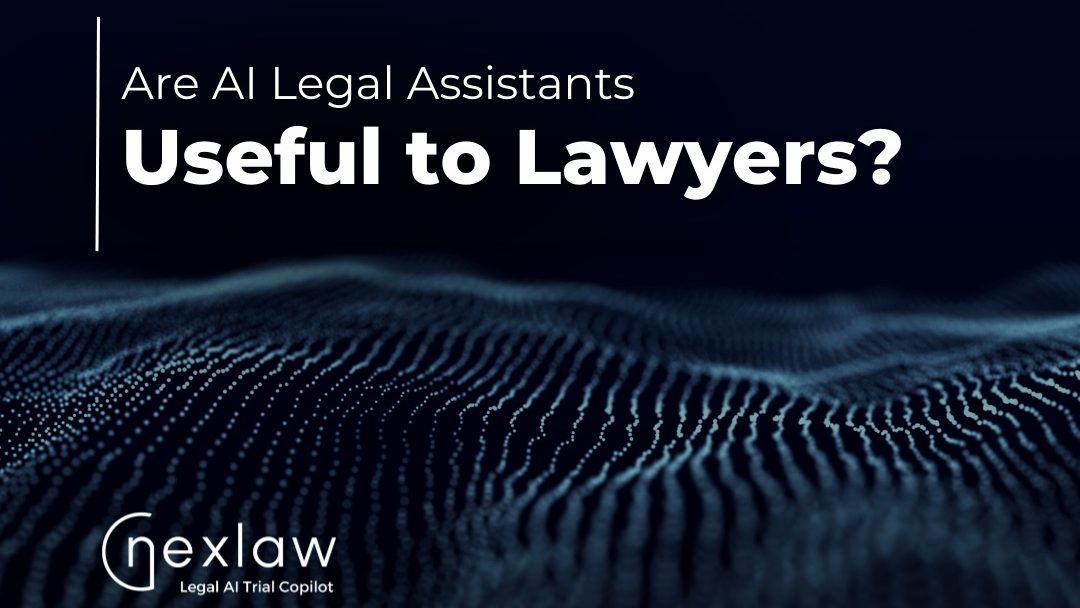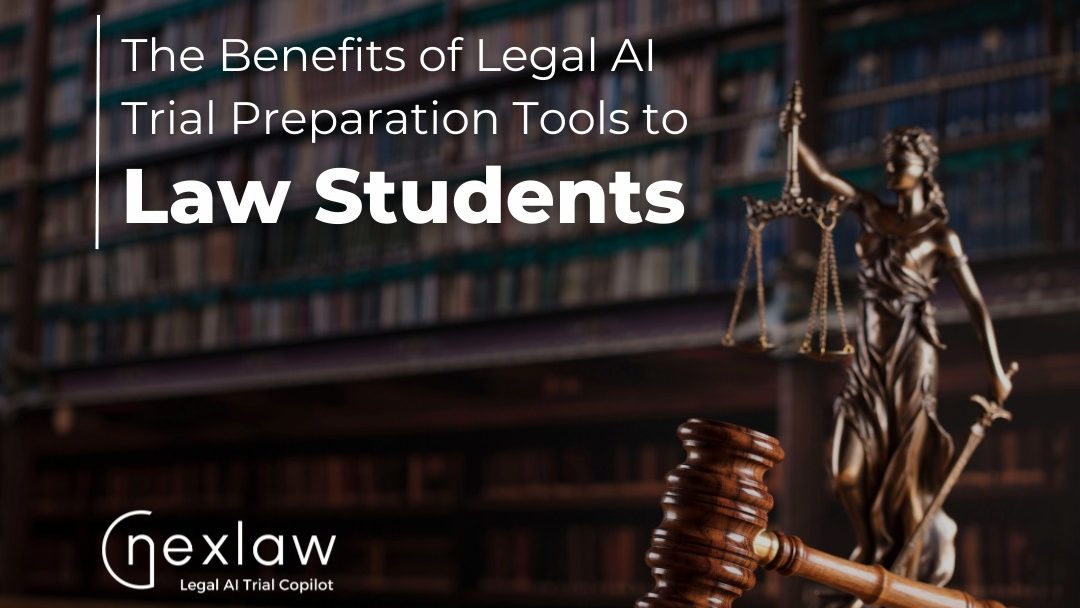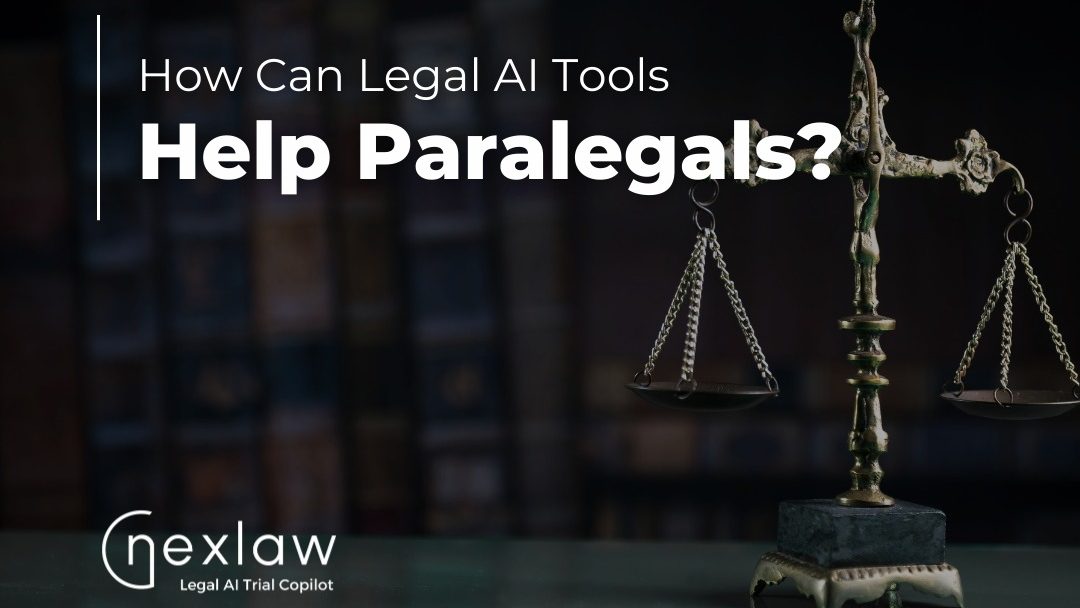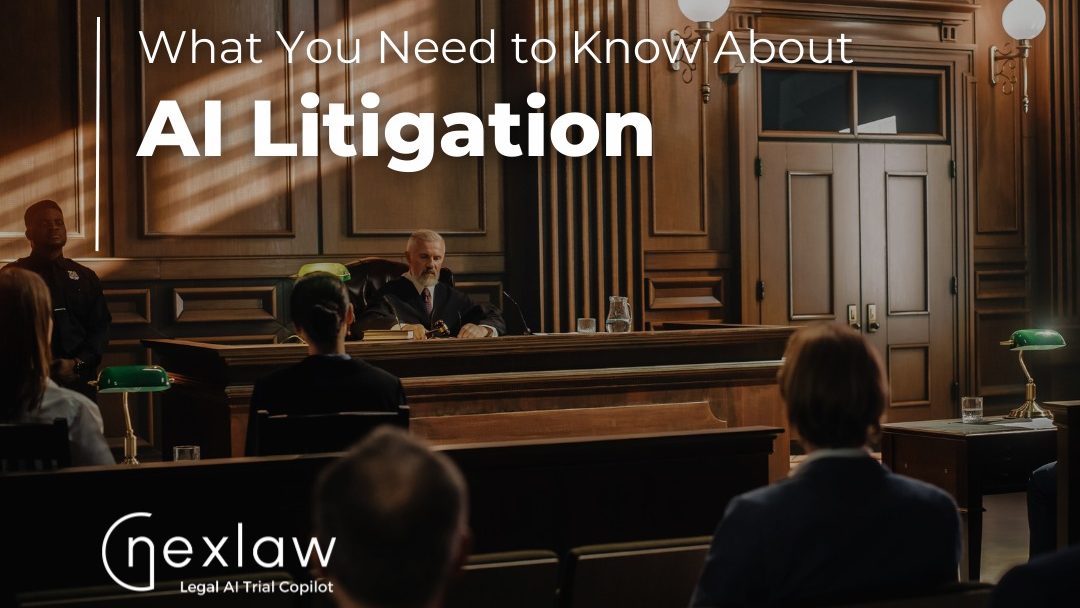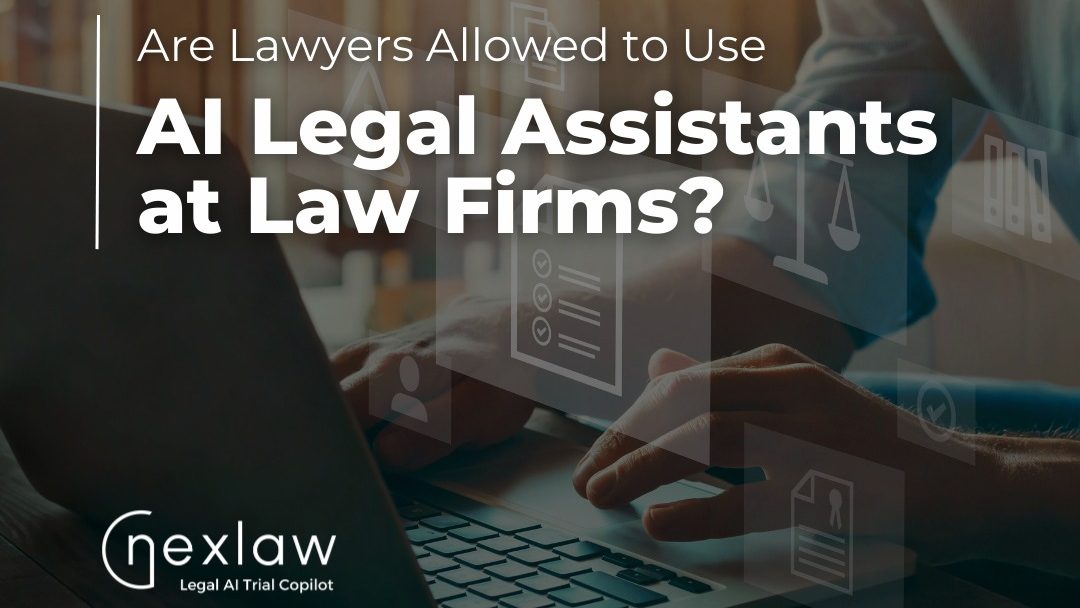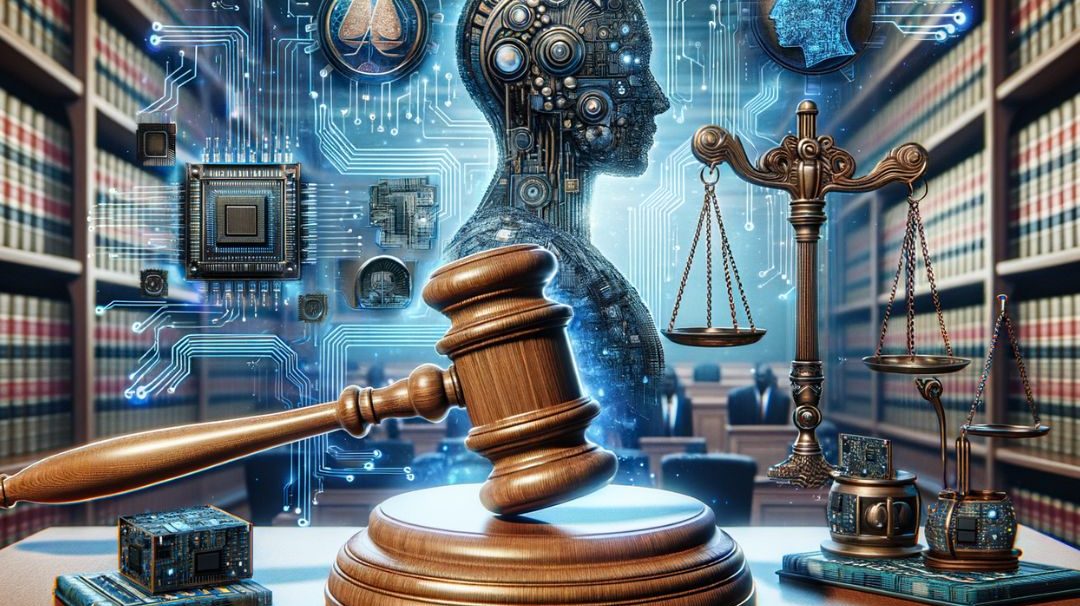Top 10 AI Legal Tools
in United Kingdom
Top 10 AI Legal Tools
in United Kingdom
What Can AI Legal Tools Do?
Designed for UK Law Firms
Legal Research
Case Law Summarizer
Precedent Report
Case Law Search
Legislation Search
Legal Writer
Contract Review
LawBot
Legal AI Trial Copilot
Dispute Litigation Analytics and Trial Stretegy
NexLaw’s Legal AI Trial Copilot revolutionizes the entire litigation process, covering everything from initial research to trial preparation and post-trial submissions.

100 Hours of Tasks
Slashed to 3 Minutes

Legal Research
AI Suggestions for Discussions
The system analyzes the statement input, identifies, and generates alternative discussions and arguments with applicable case references.
80%
Faster in research
21,783
Research Processed

Case Law Summarizer
Speedy In-Depth Case Extraction
AI-powered algorithms efficiently distill the key insights from vast volumes of legal texts in a matter of seconds.
17,821
Case Summarized
85%
of time saved
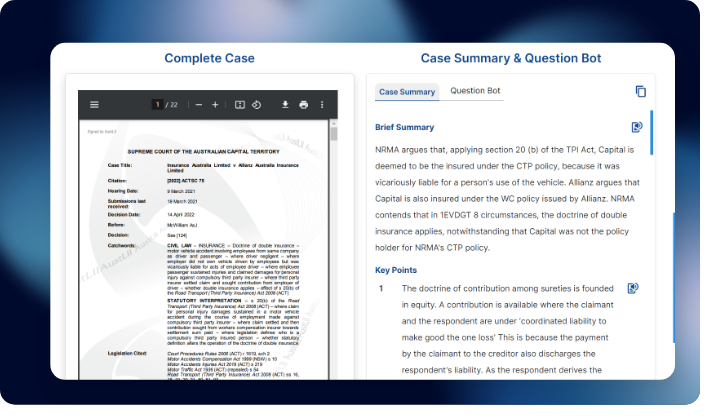
Precedent Report
Comprehensive Analysis of Legal Precedent
Effectively compiles and visualizes critical data—precedents, courts, judgment dates, and countries—to aid in comprehensive case research and strategy development.
Over 60,000
precedents analyzed across multiple jurisdictions

Case Law Search
AI-Powered Global Legal Knowledge
From paper library to a cloud-based system where you could research everything from commercial to criminal law, just within your fingertips.
Advanced search capabilities for quick and accurate research from all courts across the US, UK, Australia, Canada, New Zealand, Singapore, and Malaysia.
50M+
Global case laws at your fingertips
98%
Relevant case matches
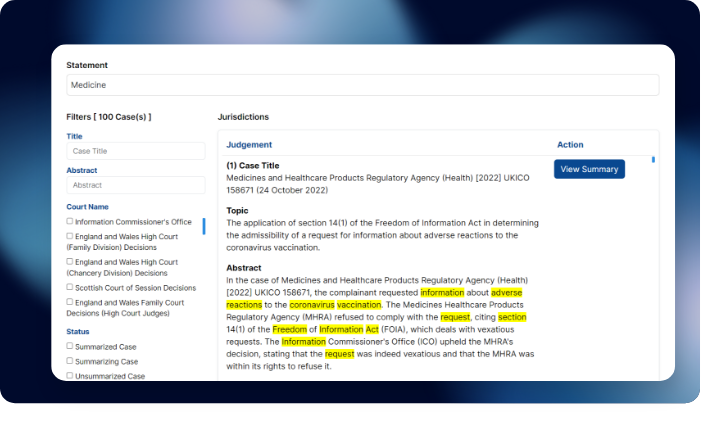
Legislation Search
AI-Driven Legislative Insight
Immediate access to a wide array of statutes, regulations, and legislative materials across various jurisdictions.
100,000+
legislative docs analyzed
85%
of time saved
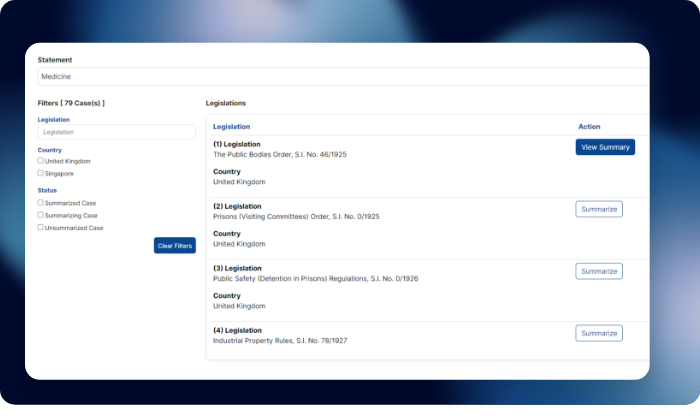
Legal Writer
Supercharged AI Writer Assistant
Tailored to accommodate legal professionals of all habits, NexLaw’s Legal Writer offers meticulously trained expertise in laws and cases.
Effortlessly transition from a blank page to letter of demands, agreements, legal arguments, legal research memo and etc.
500+
legal documents templates
85%
faster document drafting
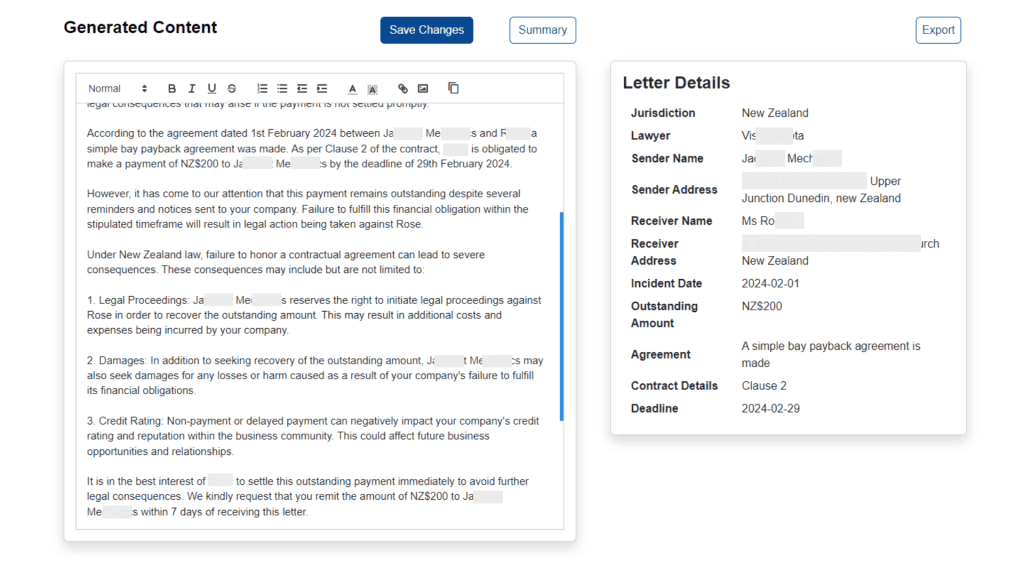
Contract Review
Superhuman Precision
NexLaw’s Contract Review doesn’t just identify crucial elements; it empowers you to mitigate potential risks with upfront issue identification, enrich your negotiation strategy with AI insights, and ensure compliance through detailed scrutiny.
95%
of potential contract risks identified
99%
compliance assured
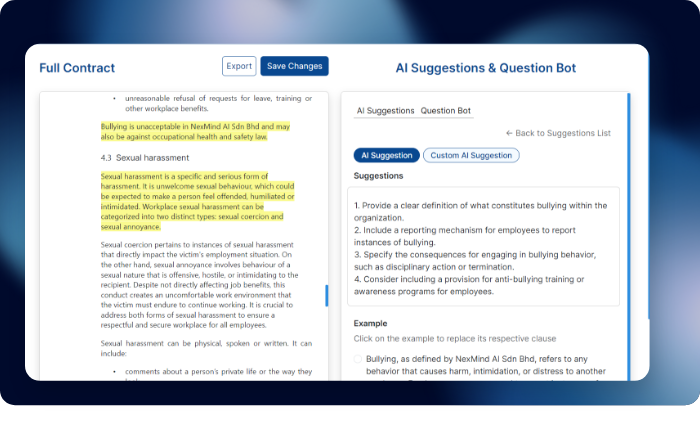
LawBot
NexLaw’s AI Question Bot
Effortlessly resolve legal queries with AI that expertly locates and highlights answers within relevant documents or provides insights from the database based on jurisdiction.
99%
relevance in jurisdiction-based responses.
95%
faster query resolution
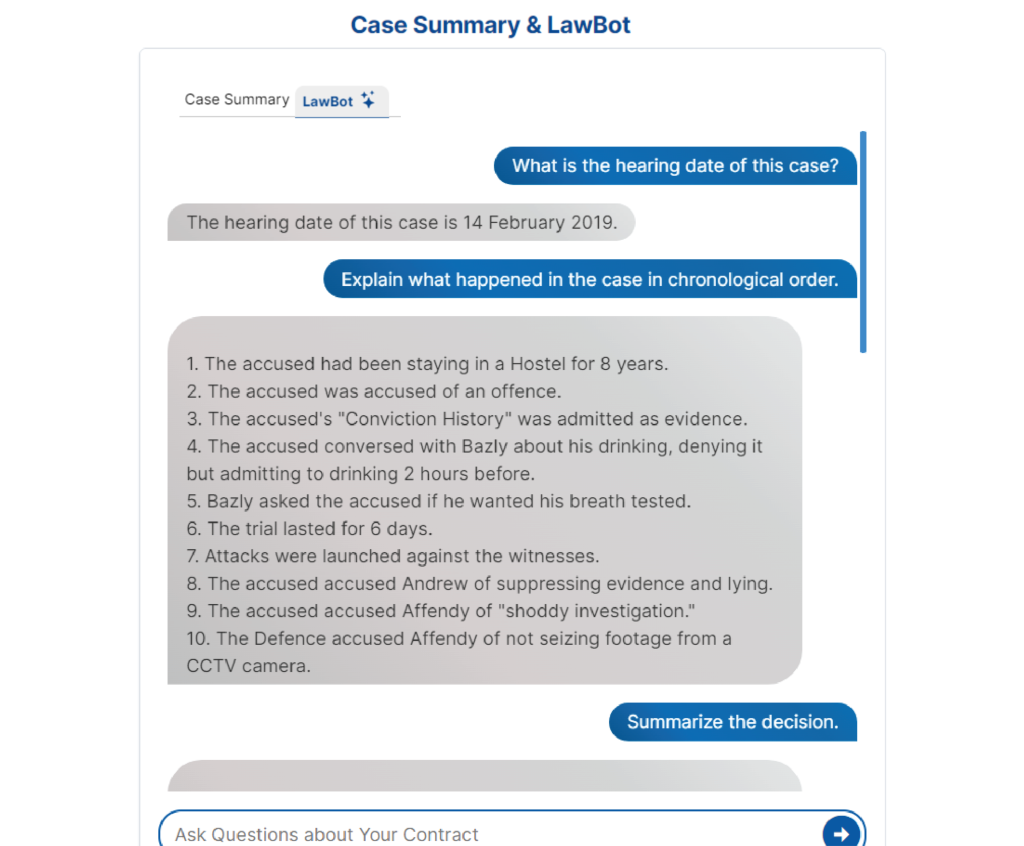
Top 10 AI Legal Tools in UK
According to a report by The Law Society of England and Wales, leading UK-based legal tech companies predominantly focus on eDiscovery and legal research solutions.
The UK government has shown strong commitment to positioning the country as a global leader in legal services. This is evident in its support for LawtechUK, a program launched in 2019 under Tech Nation to drive digital transformation in the legal sector. Initially funded with £2 million by the Ministry of Justice, the program received an additional £4 million in August 2022. Key initiatives include the Lawtech Sandbox, a research and development platform that allows entrepreneurs to test and refine their legal tech innovations.
As legal tech continues to evolve, it holds the potential to address critical gaps in the sector, such as providing affordable legal solutions to underserved communities and meeting the unique needs of small to medium-sized enterprises. In doing so, it’s not just enhancing efficiency but also democratizing access to justice.
Top 10 AI Legal Tools in UK
The legal profession is undergoing a major transformation, driven in large part by the rise of artificial intelligence (AI). With numerous AI tools available, choosing the right one for your practice can be overwhelming. While some AI solutions are designed specifically for legal work, there are also general-purpose tools making their way into the industry, offering new opportunities for efficiency and innovation.
However, before integrating any AI tool into your legal practice, it’s crucial to consider ethical obligations, confidentiality concerns, and the potential risks of relying on AI-generated content. This article explores the growing impact of AI on the legal sector, key legal tech innovations, and the leading providers helping shape the future of law.
What is legal tech and how is it revolutionizing the legal sector?
Legal tech refers to the use of technology to streamline, automate, and enhance processes within the legal industry. From document automation and AI-driven legal research to virtual dispute resolution platforms, legal tech is transforming how legal services are delivered.
This revolution is reshaping the sector in several impactful ways:
1. Enhanced Efficiency: Automation tools reduce time-consuming tasks like document review, contract drafting, and case law research, allowing legal professionals to focus on more strategic work.
2. Improved Access: Legal bots and online platforms are making legal advice and services more affordable and accessible to individuals and small businesses.
3. Cost Reduction: By automating repetitive processes, firms can cut costs and pass these savings on to clients.
4. Data-Driven Decisions: Advanced analytics help lawyers make informed decisions based on patterns and insights from large volumes of legal data.
5. Global Collaboration: Cloud-based tools and virtual platforms enable teams to work seamlessly across jurisdictions.
According to a report by The Law Society of England and Wales, leading UK-based legal tech companies predominantly focus on eDiscovery and legal research solutions.
The UK government has shown strong commitment to positioning the country as a global leader in legal services. This is evident in its support for LawtechUK, a program launched in 2019 under Tech Nation to drive digital transformation in the legal sector. Initially funded with £2 million by the Ministry of Justice, the program received an additional £4 million in August 2022. Key initiatives include the Lawtech Sandbox, a research and development platform that allows entrepreneurs to test and refine their legal tech innovations.
As legal tech continues to evolve, it holds the potential to address critical gaps in the sector, such as providing affordable legal solutions to underserved communities and meeting the unique needs of small to medium-sized enterprises. In doing so, it’s not just enhancing efficiency but also democratizing access to justice.
What are some of the leading providers of AI technology in law?
While some law firms may hesitate to embrace AI due to high-profile incidents, such as a lawyer submitting a ChatGPT-generated brief with fabricated case law, it’s important not to dismiss the potential of AI in legal work. AI tools are transforming the legal profession by automating tedious tasks and streamlining workflows. Let’s explore some of the leading companies delivering AI solutions tailored for the legal industry.
1. NEXLAW AI
A legal AI company dedicated to assisting lawyers streamline their daily routines. NexLaw provides a comprehensive suite of AI-powered tools spanning criminal to corporate law. Its new feature, NeXa, is specifically designed to address M&A and due diligence challenges with efficiency.
NeXa offers precision and speed by:
- Analyzing financial records, legal documents, and contracts to identify risks and liabilities.
- Drafting essential documents like letters of intent, purchase agreements, and closing documents while ensuring full compliance with securities laws.
- Streamlining due diligence workflows and reducing repetitive tasks.
NeXa doesn’t just simplify processes—it empowers you to deliver accurate, timely results with confidence.
For lawyers navigating the litigation process, NexLaw Legal AI Trial Copilot provides indispensable support, from initial research to post-trial submissions.
Thanks to its comprehensive features, NexLaw AI is regarded as an all-in-one tool for legal professionals.
2. CoCounsel
Casetext’s CoCounsel is an advanced AI-powered legal assistant designed for tasks like case law research. Unlike ChatGPT, it operates on a distinct large language model (LLM) integrated with Casetext’s proprietary legal databases to ensure accuracy and reliability. Beyond research, CoCounsel also excels at reviewing documents and verifying contracts for compliance.
3. Luminance
Luminance specializes in contract analysis and review, offering three distinct products tailored to legal professionals. Luminance Corporate streamlines contract processing, while Luminance Diligence focuses on contract review, identifying non-standard clauses and recommending alternative language. Additionally, Luminance Discovery provides document summarization for e-discovery, enhancing efficiency in legal investigations.
What sets Luminance apart is its ability to process text in over 80 languages, including non-Latin scripts and right-to-left formats.
4. Klarity
Klarity bridges the gap between legal and accounting by reviewing contracts, order forms, and purchase orders for tasks like lease and revenue accounting. Its platform validates order, billing, and revenue data, ensuring accuracy across workflows. Initially powered by proprietary AI models, Klarity now leverages OpenAI’s GPT, enabling it to extract data from unstructured sources like PDFs, tables, and metadata.
The software seamlessly integrates with enterprise tools, including ERP systems and platforms like Salesforce, Oracle, and SAP.
5. Everlaw
Electronic discovery, or eDiscovery, is one of the costliest parts of legal cases, requiring the review of massive volumes of documents from opposing parties to find relevant information. Everlaw streamlines this process with predictive coding, which analyzes documents and reduces the need for manual review to only a select few. The platform supports a wide range of file types, including audiovisual content, making it versatile for complex cases.
Founded in 2010, Everlaw has incorporated AI features to summarize documents and assist in drafting case narratives.
See NexLaw in Action
Start your free trial and kick off your legal AI journey with a personalized demo
*By submitting the form, you agree to the Terms of Service and Privacy Policy
6. ContractPod Technologies
ContractPods offers cloud-based software for managing the entire contract lifecycle. Its platform enables users to create, configure, and automate contracts, while also providing tools for storing and accessing contract data, as well as tracking and reporting on contract statuses. Additional features include automated risk assessments, an integrated portal for vendor negotiations, and tools for contract revisions, reviews, and terminations. Notable clients of ContractPods include Pennon, Dawn, Avanos, and Furla, among others.
7. Brightflag
Brightflag offers AI-powered software for managing legal spending, specifically designed for corporate legal teams. Its platform includes tools for e-billing, financial reporting, budgeting and forecasting, as well as vendor management. Brightflag also provides advanced analytics for financial data analysis, predictions, and insights. Additionally, it integrates with various software platforms, including Tableau, Oracle, SAP, and others.
8. Legatics
This platform provides transaction management software that allows lawyers to handle transactions using separate spreadsheets and document management systems, with real-time document storage. It features an e-signature tool that extracts signature pages and tracks signing statuses. Additionally, the platform uses machine learning to identify clause references, headings, and subheadings within documents.
9. Bryter
This cloud-based software automates legal and compliance workflows, providing tools to streamline tasks such as document processing and task automation. Users can review legal contracts and claims in real time, enhancing efficiency. Key features include litigation management, fund management, and other workflow optimization tools.
10. Juro
This AI-driven contract management platform allows users to create, review, and manage contracts in real time. It offers customizable contract templates to simplify the creation process. Key features include contract storage, negotiation, approval, e-signatures, and automated reminders. Designed for legal, HR, finance, and sales teams, the platform integrates with tools like DocuSign, HubSpot, Salesforce, and more.
11. Genie AI
This cloud-based contract analytics software empowers users to create contracts, manage clients, and streamline knowledge management through automation. By utilizing AI technologies, it helps users manage documents and sensitive contract information efficiently. Key features include document customization, pre-reviewed templates, Microsoft Word integration, clause recommendations, team collaboration tools, AI-powered contract reviews, and community-driven insights management.
75% of top UK law firms promote their use of AI to clients
A recent study by Thomson Reuters shows that a significant portion of leading UK law firms are embracing artificial intelligence (AI) as part of their service offerings. 75% of the top 20 firms in the UK are now actively showcasing their use of AI, demonstrating a growing commitment to technological innovation. In contrast, only 45% of firms ranked 21 to 40 are marketing their AI capabilities to clients, indicating a clear divide between the largest and mid-tier firms in AI adoption.
Furthermore, 79% of UK lawyers believe AI will play a major role in transforming the legal industry. The report reveals a strong enthusiasm for AI among legal professionals, with many expecting it to significantly impact productivity and client service.
Key takeaways include:
- Third-party AI solutions are more commonly used: 65% of the top 20 law firms have adopted external AI tools, while 35% have developed their own for internal use.
- Some firms are investing in AI innovation: 20% of the top 20 law firms have made venture capital investments in AI companies or established AI-focused incubators.
- Senior leadership roles are being created for AI: 35% of the top 20 firms have appointed a dedicated head of AI, compared to just 20% of firms ranked 21-40.
- Internal teams are driving the AI revolution: 60% of top firms have set up teams to lead digital transformation through AI, compared to 30% of mid-tier firms.
John Shatwell, Head of Legal Professionals, Europe at Thomson Reuters, noted that AI is becoming a key differentiator for law firms, similar to how firms market their expertise in specific legal areas or industries. He emphasized that AI is seen as a crucial tool for maintaining competitiveness and meeting client expectations. He also highlighted that while the largest firms are adopting AI at a faster pace, the gap may close as AI becomes more integrated into existing legal tools.
The study also found that AI is expected to significantly boost productivity, with lawyers anticipating a savings of up to 138 hours in their first year of using AI. This time savings is expected to come from automating routine administrative tasks, allowing lawyers to focus on more complex and strategic work.
Final Thoughts
AI is transforming the legal sector, offering significant opportunities for efficiency, productivity, and enhanced client service. As firms embrace AI tools, they are not only optimizing workflows but also gaining a competitive edge in the market. While larger firms lead the charge in AI adoption, the potential for smaller and mid-tier firms to catch up remains, particularly as AI becomes more integrated into existing legal solutions.
However, it’s essential for legal professionals to remain vigilant about the ethical implications of AI use. Ensuring the reliability of AI-generated content, safeguarding confidentiality, and complying with professional standards are crucial to leveraging AI safely and effectively in legal practice.
As AI technology continues to evolve, the legal profession is poised for a future where innovation and efficiency are paramount. Those who embrace these advancements will likely find themselves better equipped to meet client needs and stay ahead in an increasingly competitive landscape.


